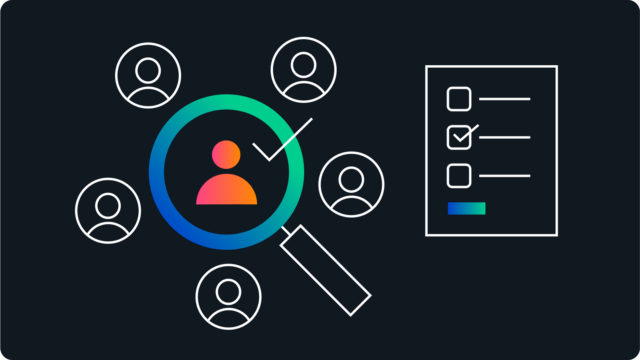How to get the most out of your agency-client relationship

Hint: It takes two.
The ultimate goal of an agency-client relationship isn’t to be friends; you can enjoy working together and still end up with subpar results. The goal is to be effective business partners.
It requires finding rhythm in meetings, reports, and daily communications, transforming briefs into deliverables, and deciding how success should be defined and measured.
Why hire an agency if you don’t value their skillset and strategic direction? Why would an agency invest in a client that isn’t engaged in their own success?
When clients and agencies trust each other to do their best work, there’s space for healthy pushback and thoughtful feedback. They challenge each other to elevate the work. The higher the degree of trust, the more the agency and client will be able to experiment, innovate, and iterate toward a better outcome.
This guide will help you get more value from your current agency-client relationship OR help you identify the need for a better one.
“An agency should act less like your nan saying, ‘yes dear’ to everything and more like a personal trainer; someone who challenges you, takes you out of your comfort zone and gets results.”
– Giles Edwards, Founder of …Gasp!
An agency-client relationship is a two-way street
A successful agency-client relationship transcends the traditional roles of service provider and client. It’s a strategic partnership built on mutual accountability, trust, and transparency.
Both parties are responsible for:
- Staying accountable to meeting times, deadlines, and deliverables on both sides
- Building trust and rapport by listening to each other and sharing expertise
- Being transparent about realistic goals, budgets, and performance so that you can set each other up for success
Habits of successful clients
Get clear on the why early on
Before signing on the dotted line, don’t just think about what you’re asking an agency to deliver, think through why you’re hiring an agency.
Communicate your goals upfront and be as specific as possible:
- E.g. Increase web traffic by 10% for non-branded keywords
- E.g. Improve quality conversions by 3% per month
- E.g. Shift up-market from SMB to Enterprise
Before any of the work begins, collaborate with your agency team to align on the scope required to realistically achieve your goals. This will help you minimize change orders and budget surprises later on.
Establish a clear chain of command
Having a clear decision-maker and decision-making process is critical to the success of any agency-client relationship. Avoid the “design by committee” pitfall, where too many voices derail or delay the final outcome.
Outline a clear chain of command with detailed responsibilities and expectations to set your team up for success and help your agency do its best work.
For example:
- Designate subject matter experts to review and provide feedback on specific website product pages
- Decide who on your team is responsible for branding decisions
- Identify decisions that require executive team input (and pre-schedule their review sessions)
Give thoughtful feedback
Good feedback fuels productive conversations and catalyzes better results. Before engaging with an agency, familiarize yourself with the strengths and weaknesses of your product, brand, and website so that you can ask informed questions and offer educated opinions.
Feedback can derail an entire project when presented without context or too late in the creative process. As will too much or too little feedback.
Give your agency feedback that is:
- Clear – be concise and to the point
- Timely – meet or negotiate feedback turnarounds to avoid delaying the work
- Actionable – make your expected or desired change or outcome clear
- Backed by rationale – share what prompted your feedback to help your agency improve for next time
Questions to ask yourself about your agency partner
Should you stay or should you go?
Finding a new agency requires time and effort. First, you must find a great fit. Then you must onboard them to your strategy, systems, and subject matter. And while it’s always the goal to grow with an agency, sometimes it’s just not the right fit. Here are a few questions to keep in mind when evaluating your agency team.
Do they actually want to work with you?
Every great partnership has an element of passion. Pay close attention to whether the agency actually wants to work with your account. Are they engaged in your business? Are they proactive and responsive? While you can work on filling information gaps and communication cadences, enthusiasm isn’t coachable.
Are they challenging you?
The creative journey is about exploration and experimentation. Innovative ideas are born during creative tug-of-war when agencies can challenge their client’s current thinking.
So think about it. Does your agency proactively lead you to the best solutions or are they simply order takers?
Do they understand your business?
Strategists, account managers, project managers, copywriters, designers, and developers should seek to understand your business and speak your language. You shouldn’t have to ask them twice to do their research.
Do they take it upon themselves to become entrenched in your industry news, customer pain points, and the competitive landscape you play in?
How do they define and measure success?
Numbers are the ultimate polygraph. Valuable agency partners not only see client work as the beginning of a long strategic partnership that will accelerate growth YoY, but they also play an active role in defining and measuring success.
Does your agency set clear KPIs with you that are realistic and measurable? After the project or during retainer work, do they send regular progress updates and provide reports with recommendations to optimize outcomes?
Do they have a clear yet customizable process?
Does your agency have a battle-tested process? Can that process be tailored to your unique business goals, audience, competitive landscape, and product offering? A clear process makes it easier to engage with your agency, and it will reduce the risk of speed bumps, delays, and poor outcomes. It’s your agency’s job to handle project logistics and make it as easy as possible for you as the client to engage.
Ask yourself, does your agency:
- Assign communication channels and a clear communication cadence?
- E.g. Weekly video check-ins, daily Slack messages, or a combination of both
- Follow a repeatable discovery method?
- Guide you through clear feedback loops?
- Lead you through a defined QA process?
- Report on project progress and performance?
Do they properly balance scope, budget, and quality?
Your agency should be an expert at navigating and educating you on creative constraints.
Project cost should reflect business priorities: time, quality, or cost. Putting more emphasis on one increases pressure on the others. Work with an agency that is realistic about its ability to deliver ROI and willing to help you find ways to maximize it.
If your budget is most important, your agency should advise how you can maximize your value per dollar. If quality is most important, your agency should clearly explain the budget and timeline required to deliver the desired quality. And if you need something done on a tight timeline, your agency should outline your expected time commitment, hard deadlines, and what may have to be removed from scope to hit your desired delivery date.
Know when to stay and when to go
It’s human nature to point fingers when creative work goes wrong. However, the success of a project depends on both the client AND the agency.
As the client, are you providing your agency with the right inputs? Are your targets and KPIs well-defined and realistic given project constraints?
On the flip side, is your agency pulling its creative and strategic weight? Are they up-to-date with your industry news, customer pain points, and your competitive landscape? Do they keep lines of communication open?
Some relationships are worth fighting for. Some aren’t. Sometimes all it takes is a few conversations to clarify expectations. Sometimes it’s just not the right fit.
By aligning on your role, your agency’s role, and your shared responsibilities you’ll stop wasting marketing dollars and start improving your results.



